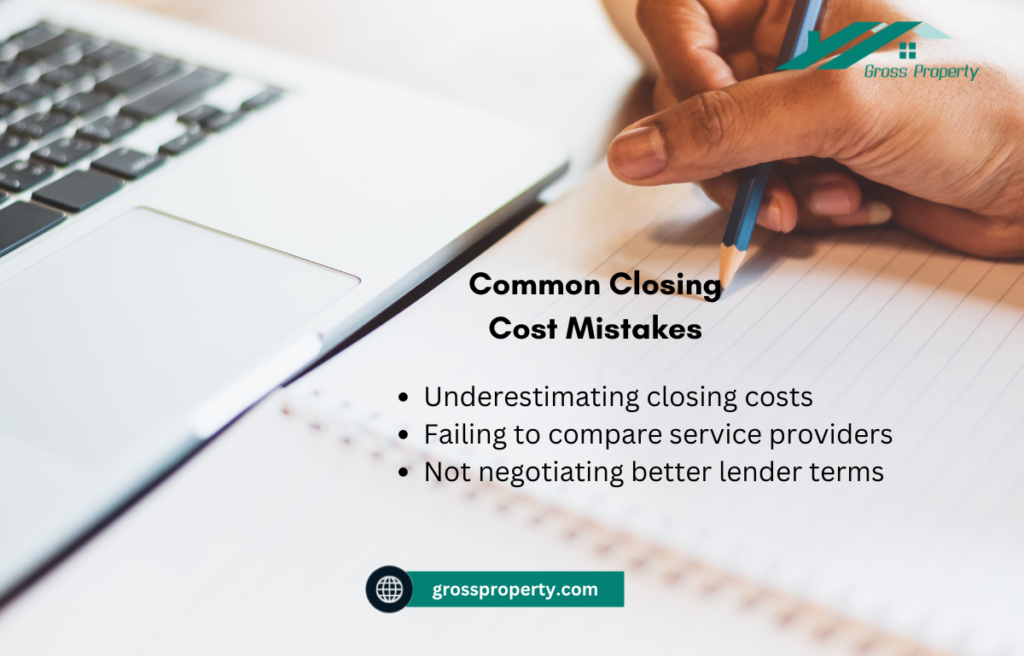When purchasing a home, buyers often focus on the sale price, but there’s another significant financial aspect to consider: closing costs. These costs, which typically range from 2% to 5% of the purchase price, are fees associated with the finalization of the real estate transaction. They include expenses such as loan origination fees, title insurance, appraisal fees, and taxes. Understanding closing costs is essential for buyers and sellers alike, as it can affect budgeting, loan options, and even the final price negotiations.
What Are Closing Costs and Why Are They Important?
Closing costs are a collection of fees and expenses that buyers and sellers must pay to finalize a real estate transaction. These costs typically range from 2% to 5% of the home’s purchase price, but the exact amount can vary based on location, the type of loan, and the specific services required during the transaction. They cover a wide range of services, including loan origination, home inspections, title searches, and more.
Closing costs are important because they ensure that all legal, administrative, and financial aspects of the transaction are properly handled before ownership is transferred. Without paying these fees, critical steps like securing the title, filing legal documents, and verifying the property’s value would be incomplete, potentially leading to legal or financial complications for both parties.

How Do Closing Costs Differ for Buyers and Sellers?
Closing costs vary significantly between buyers and sellers, as each party is responsible for specific fees that reflect their role in the real estate transaction. Buyers typically cover fees related to securing the loan, such as appraisal fees, loan origination fees, and mortgage insurance premiums. On the other hand, sellers are more likely to pay for real estate commissions, title transfer taxes, and sometimes a portion of the buyer’s closing costs if concessions are agreed upon during negotiations.
For the buyer, closing costs generally range between 2% to 5% of the home’s purchase price. These include loan-related fees, like credit report and appraisal costs, and escrow fees for property taxes and insurance. Sellers, however, typically pay 6% to 10% of the sale price, largely due to real estate agent commissions and transfer fees.
How Do Lenders Determine Closing Costs?
Lenders determine closing costs based on various factors related to the loan and the property being purchased. A key component is the loan estimate, which provides a detailed breakdown of the anticipated costs. Lenders are required by law to provide this estimate within three business days of receiving a mortgage application. The loan estimate includes all lender-specific fees, such as origination fees, appraisal costs, and credit report charges.
The exact amount of closing fees also depends on factors like the type of loan, property taxes in the area, and any additional services required, such as flood certification or homeowner’s association (HOA) fees. Once the loan is approved, the lender provides a closing disclosure three days before the actual closing date, which outlines the final costs and any changes from the initial estimate .
What Fees Are Typically Included in Closing Costs?
Closing costs include a variety of fees that cover different services required to complete the transaction. Common fees include:
- Loan Origination Fee: This is charged by the lender for processing the loan and typically ranges between 0.5% and 1% of the loan amount.
- Appraisal Fee: The lender hires an appraiser to assess the property’s value, ensuring it is worth the loan amount. This fee usually falls between $300 and $500.
- Title Search and Title Insurance: A title search is conducted to confirm that there are no legal claims or liens against the property. Title insurance protects the buyer and lender in case of future disputes over ownership.
- Recording and Transfer Fees: These are administrative costs for recording the deed and transferring ownership in the public records.
- Prepaid Expenses: This includes items like property taxes, homeowner’s insurance, and any mortgage insurance that must be paid upfront.
Each of these fees plays a vital role in ensuring the legality and security of the transaction, protecting both the buyer and the lender.
When purchasing a home, buyers often focus on the sale price, but there’s another significant financial aspect to consider: closing costs. These costs, which typically range from 2% to 5% of the purchase price, are fees associated with the finalization of the real estate transaction. They include expenses such as loan origination fees, title insurance, appraisal fees, and taxes. Understanding closing costs is essential for buyers and sellers alike, as it can affect budgeting, loan options, and even the final price negotiations.
What Role Do Taxes Play in Closing Costs?
Taxes are a key component of closing costs, impacting both buyers and sellers. Property taxes, for example, are often prorated, meaning that both parties pay their share based on the time they owned the home during the current tax year. Buyers may also have to pay a portion of future property taxes upfront, especially if they are required to set up an escrow account.
Transfer taxes, which are imposed by state or local governments, are another significant tax-related cost. These taxes are typically paid by the seller, and they cover the cost of transferring the title from one party to another. The exact amount varies based on the property’s location and value, but these taxes are a mandatory part of most transactions.
How Can You Estimate Closing Costs Before Buying a Home?
Estimating closing expenses before purchasing a home involves accounting for a variety of expenses, including loan fees, third-party services, and taxes. The first step is to review your lender’s loan estimate, which provides a breakdown of expected costs such as appraisal fees, title searches, and loan origination fees. Typically, buyers should budget 2% to 5% of the home’s purchase price for closing costs.
Online tools, like closing cost calculators, can also help buyers estimate these expenses based on the home’s price and location. It’s important to account for additional factors like property taxes and homeowner’s insurance, which may vary by region. Consulting with your lender and real estate agent can further refine your estimate, ensuring you have the necessary funds to cover all closing-related expenses.
What Strategies Can Help Minimize Closing Costs?
There are several strategies that can help homebuyers reduce their closing expenses. One of the most effective methods is shopping around for lenders. Different lenders offer varying rates and fees, and comparing offers can result in significant savings on origination fees, application fees, and more. By requesting loan estimates from multiple lenders, you can negotiate a lower rate or request that certain fees be waived or reduced.
Another way to minimize costs is to shop for services like title insurance and home inspections. Some services, such as title insurance or pest inspections, can be provided by a variety of vendors, giving buyers the opportunity to compare prices and select more cost-effective options. Finally, asking the seller to contribute to closing costs is a common practice in certain markets, particularly when the property has been on the market for a while. Seller concessions can help offset the buyer’s upfront expenses.
How Do Closing Costs Vary by Location?
Closing costs can vary significantly depending on the location of the property. One of the primary reasons for this variation is differences in state and local taxes. Some states, like New York and California, have high real estate taxes and transfer fees, which can substantially increase the total closing costs. For instance, the average closing costs in Washington, D.C., are nearly $30,000, while in Missouri, they are around $2,000.
Additionally, home prices influence closing fees, as many fees are calculated as a percentage of the loan amount. Areas with higher property values tend to have higher closing costs overall. Beyond taxes, location-specific regulations and fees, such as local recording fees or HOA transfer fees, also contribute to the variance.
Are Closing Costs Negotiable, and How Can You Leverage This?
Yes, many closing costs are negotiable. Loan-related fees, such as origination fees, application fees, and sometimes even appraisal fees, can often be negotiated with lenders. Borrowers can use loan estimates from competing lenders as leverage to request lower fees. Additionally, it’s possible to negotiate discount points, which are upfront fees paid to lower the interest rate on the loan.
Other negotiable items include real estate agent commissions and certain legal or service fees. Buyers can request fee reductions from their agents or ask if the seller is willing to cover some costs as part of the sale agreement. Leveraging these negotiations can save thousands of dollars in some cases, especially in a buyer’s market where sellers may be more willing to contribute to closing costs to close the deal.
What Are the Key Differences in Closing Costs for Various Loan Types?
Closing costs can differ significantly depending on the type of loan. Conventional loans often have standard fees like loan origination, appraisal, and title insurance, but they also allow more flexibility in who pays for the closing costs. For FHA loans, borrowers are required to pay a Mortgage Insurance Premium (MIP), which can increase closing costs. Additionally, FHA loans limit the amount that sellers can contribute toward the buyer’s closing costs to 6%,
VA loans have unique closing costs, including a funding fee, which varies depending on the size of the down payment and whether it’s the buyer’s first VA loan . Importantly, VA loans don’t require private mortgage insurance (PMI), which reduces the overall monthly costs but still includes other standard fees like appraisals and title services.
Can You Roll Closing Costs into Your Mortgage?
Yes, it is possible to roll closing costs into your mortgage, a practice that is sometimes referred to as a no-closing-cost mortgage. This option allows borrowers to avoid paying upfront fees at the time of closing by adding these costs to the loan balance. However, this increases the total loan amount and typically results in higher monthly payments, as borrowers will pay interest on the closing costs over the life of the loan.
Rolling closing fees into the mortgage can be advantageous for buyers who are short on cash, but it does come with drawbacks. It can reduce the equity in your home and lead to higher overall interest payments. Additionally, this option is generally available for certain loan types, like VA and FHA loans, and may not be offered by all lenders.
How Do Real Estate Agents and Title Companies Influence Closing Costs?
Real estate agents and title companies play a critical role in determining the final closing costs. Real estate agents, for instance, typically receive a commission of 5% to 6% of the home’s sale price, which is paid by the seller but can indirectly impact the total transaction cost. In some cases, agents may agree to reduce their commission if negotiated, which can lower closing costs.
Title companies handle important services like the title search and title insurance, which are essential to ensuring the property is legally transferable without disputes. Title insurance fees can vary by state, and shopping around for a title company can sometimes help reduce costs. Additionally, the cost of these services is often negotiable, especially in competitive markets.
What Are Common Mistakes When Managing Closing Costs?
One of the most common mistakes when managing closing costs is failing to budget adequately. Many homebuyers underestimate these costs, which typically range from 2% to 5% of the home’s purchase price.This oversight can lead to last-minute financial strain or even jeopardize the entire purchase. It’s crucial to plan for these expenses early in the homebuying process to avoid any surprises at closing.
Another mistake is not shopping around for services such as title insurance, home inspections, and lenders. Different providers can offer varying prices, and not comparing them can result in paying more than necessary. Additionally, some buyers neglect to negotiate with their lender for better terms, such as reduced origination fees or lower interest rates, which can significantly impact the total closing costs.

How Does Understanding Closing Costs Impact Your Budgeting for Homeownership?
Understanding closing costs is essential for accurate budgeting when purchasing a home. These costs are a significant part of the total expenses and can influence decisions about how much home you can afford. By being aware of closing costs early on, you can adjust your budget to ensure that you have enough funds set aside to cover these fees without compromising your down payment or emergency savings.
Moreover, understanding the specifics of closing expenses allows you to strategically manage your finances. For example, you can decide whether to pay these costs upfront or roll them into your mortgage, a decision that will affect your monthly payments and the total interest paid over the life of the loan. Properly accounting for closing costs ensures that you enter homeownership on solid financial footing.
How Can First-Time Homebuyers Navigate Closing Costs Effectively?
First-time homebuyers can navigate closing costs effectively by educating themselves about the different fees involved and using resources such as loan estimates and closing disclosures to understand what they will owe. Reviewing these documents carefully allows buyers to anticipate costs and avoid unexpected charges at closing. It’s also beneficial to work closely with a real estate agent and lender who can explain these costs and help identify potential savings .
Additionally, first-time buyers should consider exploring assistance programs that can help cover closing costs. Many state and local governments offer grants or low-interest loans for first-time homebuyers, which can significantly reduce the financial burden. Negotiating with the seller to cover some of the closing costs can also be an effective strategy, particularly in a buyer’s market.
In conclusion, understanding and managing closing costs is an essential aspect of the homebuying journey. By being aware of the common pitfalls, such as failing to budget adequately and not shopping around for the best rates, buyers can avoid unnecessary financial stress. Taking proactive steps to plan for closing costs, negotiate with lenders, and explore available assistance programs will ensure a smoother and more affordable transaction.
For first-time homebuyers, navigating the complexities of closing costs can be challenging, but with the right preparation and guidance, it becomes manageable. The home loan process is already complex, and factoring in closing costs is crucial to ensure a complete financial picture. By considering these costs early on, buyers can make informed decisions, avoid last-minute surprises, and secure their path to homeownership with confidence.











